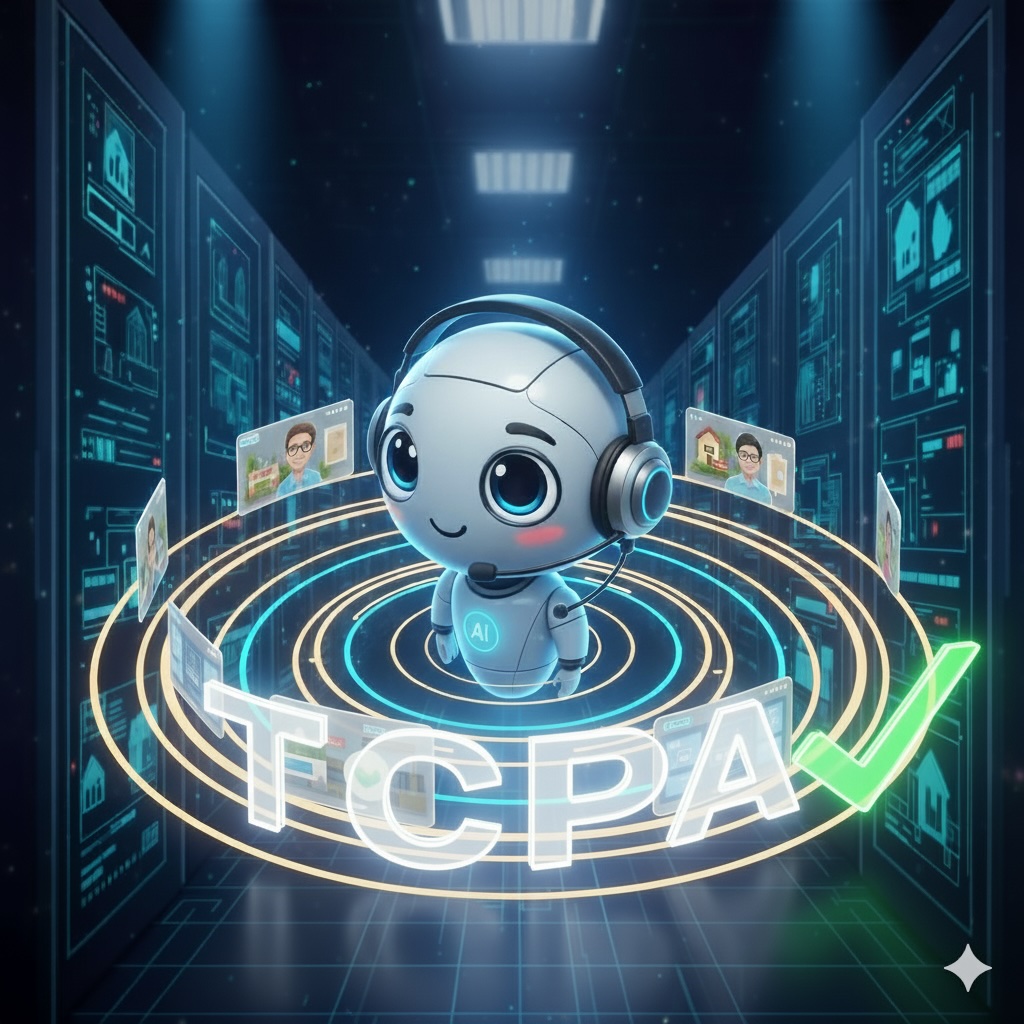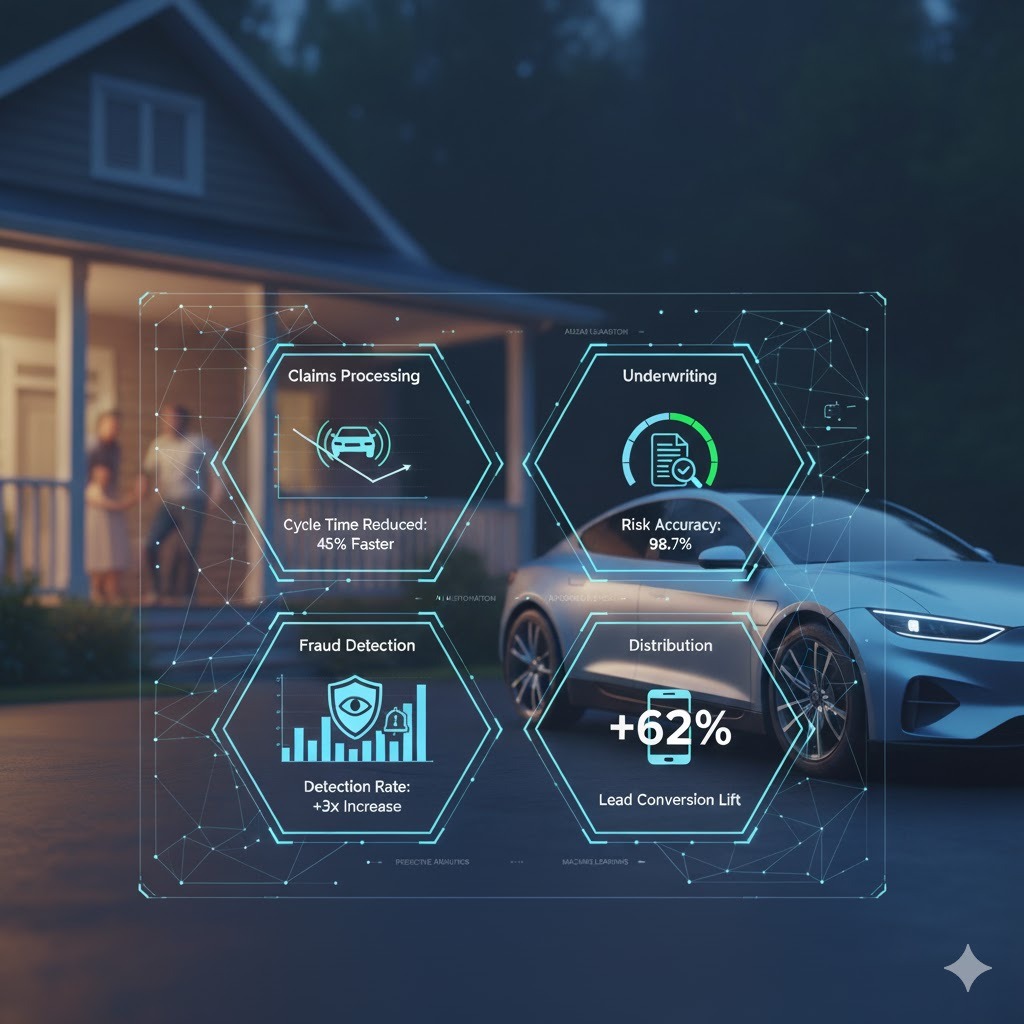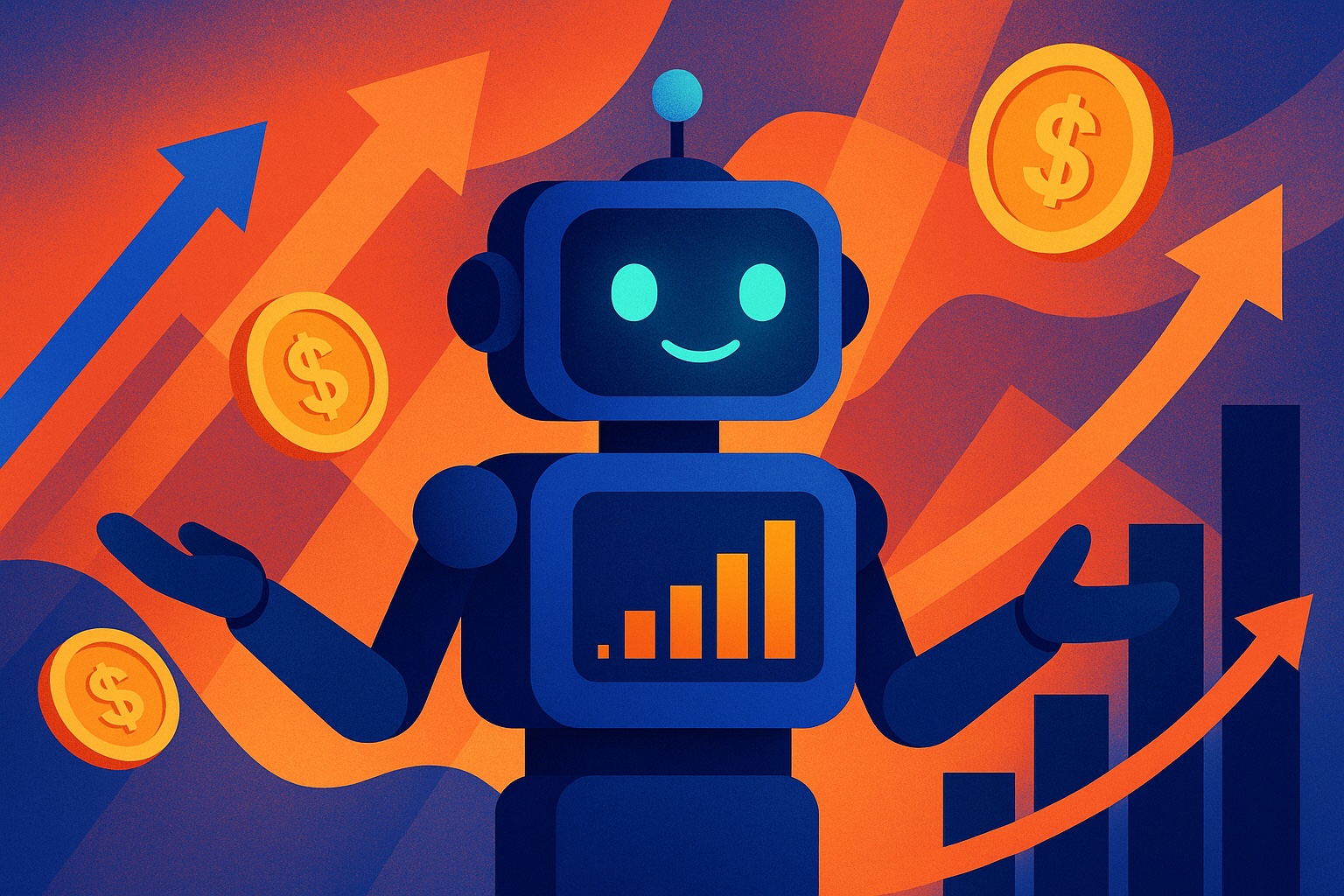Why TCPA Compliance Is Critical for AI Phone Agents
And How Modern Revenue Teams Can Stay Protected While Scaling
Artificial intelligence is changing the way revenue teams operate. Sales and marketing leaders no longer have to choose between fast lead follow-up and limited rep availability. With AI phone agents, every new contact can be called within seconds. There is no wait time, no manual scheduling, and no risk of leads slipping through the cracks.
The impact is real. Across OneAI customers, we consistently see:
- 70% contact rate
- 38% qualification rate
- 45% handoff rate
These results come from AI agents that sound natural, follow process perfectly, and deliver consistent conversations at any hour of the day.
There is one crucial piece many teams overlook when evaluating phone-based AI.
If your AI phone strategy is not TCPA-compliant, it is not scalable. It is risky.
That risk is not theoretical. It affects your brand, your revenue, and your legal exposure. This article explains why TCPA compliance matters more than ever in the age of AI, what the law requires, real examples of costly violations, and how a platform like OneAI helps companies automate calling safely and confidently.
What Is the TCPA, and Why Does It Matter Right Now?
The Telephone Consumer Protection Act (TCPA) is a U.S. federal law that governs phone-based outreach. It regulates:
- Telemarketing calls
- Calls using artificial or prerecorded voices
- Automated calls
- Marketing text messages
- Use of automated dialing systems
- Do Not Call rules
- Opt-out requirements and quiet hours
The law was originally created to reduce unwanted robocalls. Today, the FCC has made the rules even clearer. If an AI is generating the voice on a call, it is treated as an artificial or prerecorded voice under the TCPA. This means AI voice agents must follow all TCPA rules. No exceptions.
This matters because AI systems scale rapidly. A human rep may make 50 calls per day. An AI phone agent can make thousands. If even a small percentage of those calls violate TCPA rules, the potential liability grows very quickly.
Why AI Phone Agents Require Stricter Compliance
AI-generated voice calls fall under a stricter standard for two reasons.
First, AI voice is considered artificial.
Even if the voice sounds natural or conversational, the law focuses on how the audio is created, not how it sounds.
Second, AI systems can unintentionally scale a mistake.
A single workflow error in a CRM can result in thousands of calls to the wrong audience.
Regulators understand this dynamic. That is why there is increased attention on AI-driven calling, especially in 2024 and 2025. Revenue teams must work with AI partners that build compliance into their core technology.
The Consequences of Non-Compliance Are Serious
TCPA violations come with statutory damages of $500 per illegal call or text. If the violation is considered willful or knowing, the penalty increases to $1,500 per call or text.
For AI systems operating at scale, this adds up quickly.
Consider the exposure:
- 1,000 illegal calls equals up to 1.5 million dollars
- 10,000 illegal calls equals up to 15 million dollars
- 100,000 illegal calls equals up to 150 million dollars
These figures are not theoretical. Major cases include:
- Dish Network was ordered to pay 280 million dollars in a Do Not Call case, with an additional 210 million dollar settlement for later violations.
- Multiple companies have paid multi-million dollar settlements for robocalls and robotexts.
- Mid-sized organizations have faced class actions valued in the tens of millions.
A single illegal call can cost more than the value of a qualified meeting. That is why sales and marketing leaders are moving toward compliance-first growth, especially when incorporating AI.
TCPA Requirements Every AI Phone Agent Must Follow
Here are the rules that matter most when deploying AI voice agents. This section focuses on practical, plain-language explanations.
1. Prior Express Written Consent
For most marketing calls made to a mobile phone, or any call using an artificial or prerecorded voice, you must have clear written consent from the person being called.
This consent must be:
- Clear and affirmative
- Specific about the type of calls
- Provided by the person receiving the calls
- Documented and provable
Calling someone without proper consent is the fastest way to trigger TCPA exposure.
2. Do Not Call Compliance
There are two layers of protection.
- The National Do Not Call Registry
- Your internal company Do Not Call list
AI phone agents must never call individuals on either list. Opt-outs must be honored immediately and prevented from future contact.
3. Respecting Quiet Hours
Telemarketing calls may not be made before 8 a.m. or after 9 p.m. in the recipient’s local time.
AI systems that call nationwide must automatically adjust to different time zones. Otherwise, they can violate TCPA rules without realizing it.
4. Clear Identification
AI agents must:
- Identify the business making the call
- Explain the purpose of the call
- Provide a callback method
People must know who is calling and why.
5. Simple Opt-Out Mechanisms
Every AI call must make it easy to opt out. Phrases like “Please stop calling me” or “Remove me from your list” must be understood.
The system must:
- Recognize opt-outs
- Confirm them
- Log the request
- Prevent any future calls
6. Accurate Record-Keeping
If a complaint or investigation arises, companies must show:
- When consent was collected
- How consent was collected
- What the AI said on each call
- Whether an opt-out occurred
- How follow-up actions were handled
Good record-keeping protects the business.
How AI Increases Both Risk and Opportunity
AI phone agents change the compliance landscape in two very different ways.
Where AI Increases Risk
- Scale multiplies mistakes.
- Synthetic voices trigger stricter rules.
- AI follows workflows without questioning them.
- Poor CRM hygiene becomes dangerous when AI is attached.
Where AI Reduces Risk
A well-configured AI agent can be more compliant than a human. It never:
- Forgets to identify your company
- Ignores an opt-out
- Calls outside allowed hours
- Deviates from approved scripts
- Misleads prospects
- Calls someone who has opted out previously
AI can be your most compliant representative if it is built and configured responsibly.
How OneAI Helps Companies Scale Phone Communication Safely
OneAI is built around a simple principle. AI calling must be both powerful and trustworthy. Every feature is designed with TCPA compliance in mind.
1. Consent-Aware Calling
OneAI calls only contacts with:
- Valid consent
- No opt-out flags
- No DNC restrictions
Our agents sync directly with your CRM so consent data stays accurate.
2. DNC Protection
OneAI automatically suppresses:
- National DNC numbers
- Internal DNC entries
- Real-time opt-outs from calls
Once someone opts out, the suppression is immediate.
3. Time Zone Accuracy
OneAI calculates local time automatically and avoids calling outside quiet hours. This ensures compliance even for large national campaigns.
4. Transparent Intros
Our AI agents:
- Clearly identify the company
- Explain why they are calling
- Communicate clearly and honestly
This builds trust and ensures compliance.
5. Advanced Opt-Out Understanding
OneAI recognizes opt-out phrases in natural language and handles them instantly, without requiring specific keywords.
6. Full Call Logging
OneAI provides:
- Transcripts
- Call summaries
- Contact outcomes
- Consent verification
This creates a complete audit trail.
7. Fully Controllable AI
OneAI is built on proprietary, controlled AI. This differs from generic models that may behave unpredictably. Our system prioritizes:
- Safety
- Consistency
- Predictability
- Compliance
This is essential for enterprise-grade communication.
Why Compliance Helps Revenue, Not Just Risk
Compliance is not a barrier to growth. Compliance is the key to sustainable growth. When AI calling systems are compliant:
- You can call faster and with confidence
- You minimize legal and operational risk
- You protect your brand
- You improve customer trust
- You maximize long-term scalability
The goal is not to call everyone. The goal is to call the right people, at the right time, in a legally sound and respectful way.
Final Thoughts: The Future of AI Calling Is Trust-Based
AI phone agents are already outperforming traditional SDR teams in speed, cost, and consistency. With results like 70 percent contact rates and 45 percent handoff rates, the value is undeniable.
But none of this matters unless the program is built on a foundation of compliance and trust.
OneAI gives companies the platform they need to use AI phone agents at scale while staying fully aligned with TCPA requirements. Compliance is not just a checkbox. It is the foundation for long-term, responsible revenue growth.
If you are exploring AI phone agents, make TCPA compliance your first requirement. Your team and your legal department will thank you.
Read Next

With over a decade of professional experience, my journey has been marked by a commitment to excellence in leadership, community building, and strategic sales.
At One AI, I lead the charge in pioneering generative AI solutions that revolutionize how businesses operate. Our mission aligns with my passion for harnessing technology to empower organizations and adapt to an ever-evolving digital landscape, ensuring they remain at the forefront of innovation.




